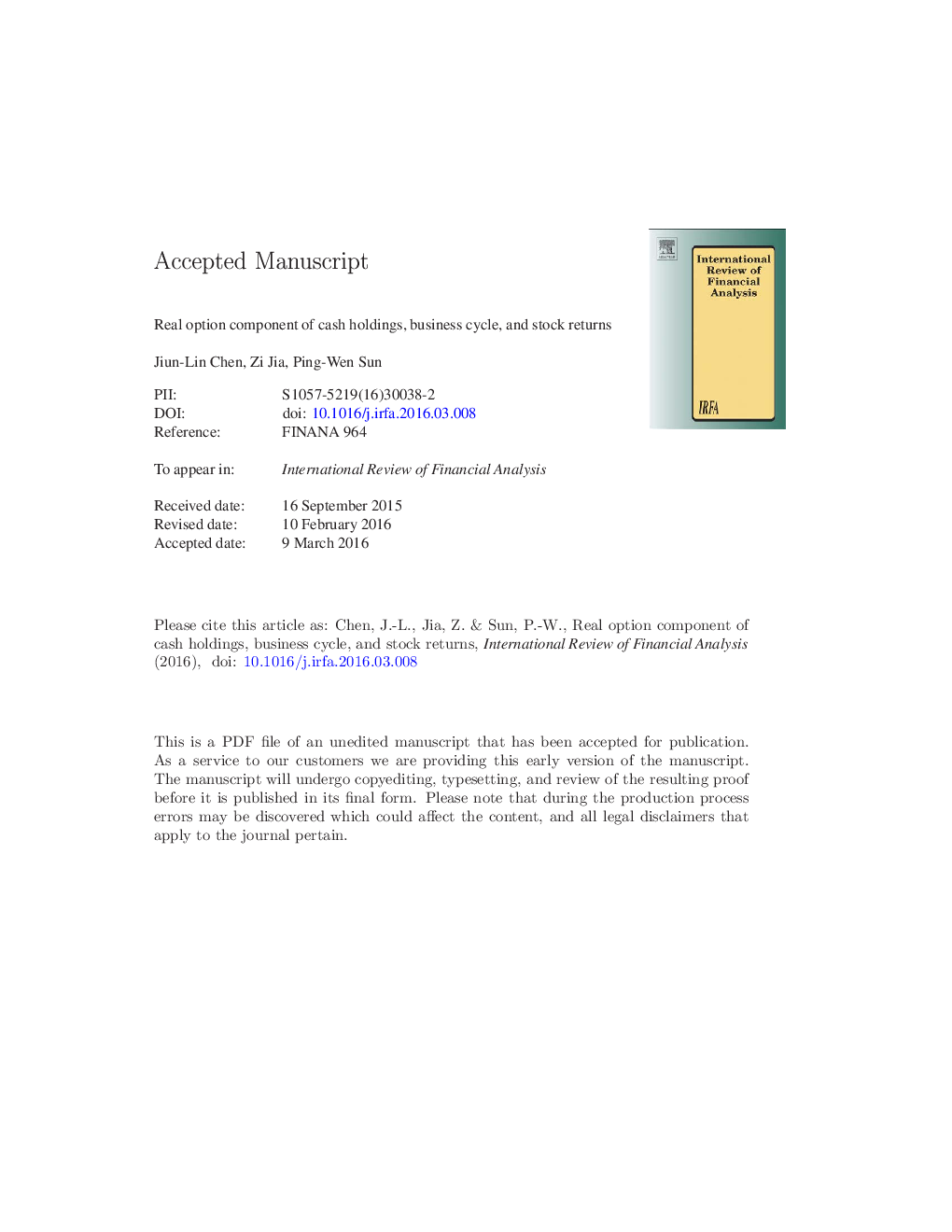| Article ID | Journal | Published Year | Pages | File Type |
|---|---|---|---|---|
| 5084471 | International Review of Financial Analysis | 2016 | 35 Pages |
Abstract
Corporate managers tend to preserve cash with an expectation of a worse economy while spend cash to exercise growth opportunities with a favorable economic condition. Using three empirical proxies (book-to-market ratio, idiosyncratic volatility and return on asset) in the literature, we extract a real option component of corporate cash holdings, serving both functions of precautionary saving and exercising growth options. Our empirical results show this component, in aggregate, increases when the real GDP declines and decreases when GDP inflates. Also, stocks with returns declining more to a shock to the aggregate real option component of cash holdings earn higher future returns. Moreover, stock returns of firms with higher cash holdings positively comove with the shock to the aggregate real option component, suggesting investors prefer to hold firms with higher cash holdings when the economy is deteriorating.
Related Topics
Social Sciences and Humanities
Economics, Econometrics and Finance
Economics and Econometrics
Authors
Jiun-Lin Chen, Z. Tingting Jia, Ping-Wen Sun,
